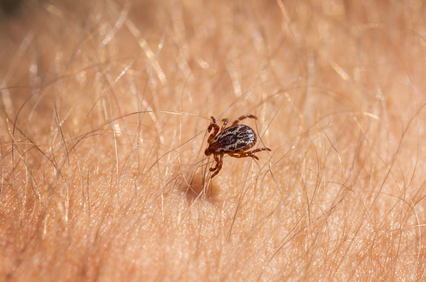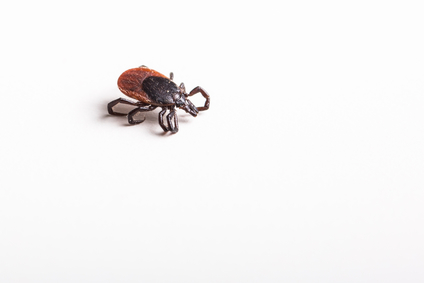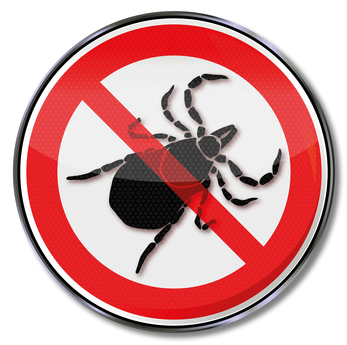These Three Facts About Ticks Will Amaze You
There are different kinds of biological relationships. One of them is parasitic. This is where one of the organisms depends on the other for sustenance and is of no value to its host. So, it can rightly be said that parasites are among the most annoying organisms on earth. Ticks are parasites that depend on their hosts for a blood meal. Without it, they are unable to reproduce themselves. Having the right facts about ticks helps you to make informed choices when it comes to tick control. Here are some details you probably didn’t know of.
Ticks Survival Without a Host

The primary reason for caring about ticks is because they are a threat to both human beings and animals. They not only bite but also transmit diseases in the process. But how long can they live without a host?
Some tick species must feed right away in order to survive. Others are able to live for longer periods of time without feeding. Ticks are a three-host species, meaning they attach to a different host during each stage of their lifecycle – larvae, nymph and adult – so each different species of tick has different survival rates depending on what stage of life they are in…
Blacklegged ticks are also called deer ticks because they like white-tailed deer as their hosts when they are adult ticks. But when these ticks are in the larvae, or newborn/infancy stage, they normally feed once, usually June through September. If deer tick larvae do not feed during this time, they typically live less than one year. As nymphs, deer ticks feed during the summer. However, if nymphs do not feed during their first season, some can survive through two more seasons without a meal!
The American dog tick can survive for even longer than deer ticks! Unfed larvae are able to survive for up to 540 days, while unfed nymphs have been recorded to survive for up to 584 days! Even more impressive, unfed adult American dog ticks can go 2-3 years (up to 1,053 days) without food! Read more at Pestworld For Kids
Ticks on Clothing

Say, for example, that there could be a tick or ticks hiding in your clothes. Pretty scary to think of that, right? But how long can they survive in your clothes?
Technically a tick can last years without a host, but that’s not going to happen in a household environment. A tick will usually drop off your clothes and most likely die within 24 hours.
A typical household environment has 70-75 percent humidity level which will dry out a tick fast. There’s just not enough moisture in a house for a tick to survive for more than a day or two.
Ticks might be able to last a little bit longer on damp clothes in a hamper, but probably no longer than a week or two. They definitely won’t last long enough to have a blood meal or lay eggs. Read more at The Hiking Authority
If only these parasites could stay on the clothes and not move to find a blood meal, you’d be safe. Moreover, your pets would also be safe. But as long as these tiny pests can move and bite anyone in the house, there’s something to worry about.
Tick Nests

Ideally, it is best to ensure your home is free of ticks. However, you also need to be aware of the “tick hotspots” around your home. They’re known as tick nests.
Even though tick nests may include hundreds or even thousands of eggs, they’re quite small. A cluster of tick eggs is about an inch or less across. The eggs remain stuck together until they hatch, which can be anywhere from 2 weeks to 2 months after they are laid…
Unfortunately (and this is the concerning part), a female tick inside the home may lay her eggs amid carpet fibers or on soft furniture or curtains.
A tick infestation in your home means nests may be found along baseboards or in protected corners of the house, garage, shed, or dog kennel. A female tick may lay eggs in the pockets or linings of coats and other articles of clothing.
It’s unusual to find a tick nest out in the open where it could be easily seen or damaged. Because of this and the small size of an egg clutch, finding a tick nest in your house could be very difficult. Read more at Healthline
Whether inside your home or outdoors, the presence of a tick anywhere within your vicinity is bad news. As always, prevention is better than cure.
If you’re looking for a fool-proof solution to a tick problem in your home o yard, think of Backyard Bug Patrol. Our barrier spray program will safeguard your home and family from the harmful effects of ticks. Call us today!
Related posts:
- “Watch Out For Ticks In This Season”- True or False?
- Here Are The Facts About Tick Bites And What You Can Do About Them
- Ticks Are Complex- Here’s Why And What You Can Do To Keep Safe
- Backyard Bug Patrol Receives Glowing 5-Star Review on Google
- Facts About The Tick Life Cycle You Probably Didn’t Know
